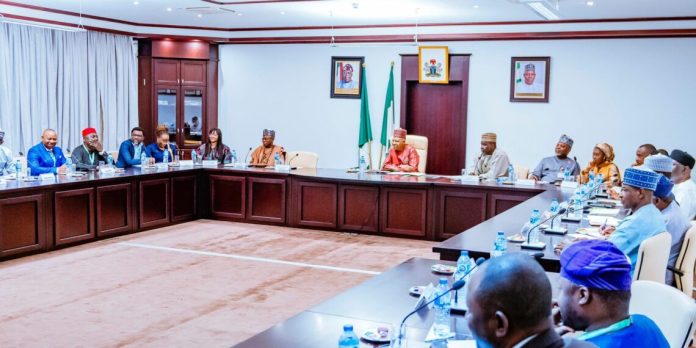The Federal Government announces plans to revitalize the National Addressing Council (NAC) as part of efforts to enhance Nigeria’s addressing system and promote economic growth, efficient national planning, and financial inclusion. A technical committee will also be inaugurated to support this initiative.
This decision emerges from a recent pre-meeting of the NAC held at the Presidential Villa, where Vice President Kashim Shettima underscores the importance of a functional and standardized addressing system in addressing urban planning challenges and improving service delivery.
Vice President Shettima highlights the pressing need for a robust addressing system, noting that disorganized address structures undermine governance, logistics, and financial access for millions of Nigerians.
“A modern addressing system is not a luxury but a necessity for national development, socio-economic progress, and security,” Shettima states.
He emphasizes that addressing inefficiencies hinder emergency response, complicate navigation, and impede trust in financial services, particularly in underdeveloped areas.
Shettima acknowledges that the foundation for a national addressing system was laid in 2017 but stresses the importance of transitioning from planning to tangible implementation.
“This initiative is key to achieving our goals as a 21st-century economy. It cannot remain dormant,” he remarks.
He outlines the broader benefits of an organized addressing system, including streamlined logistics, improved e-commerce capabilities, and enhanced disaster response mechanisms. He calls for federal, state, and local collaboration to ensure the initiative’s success.
The meeting includes presentations from the National Identity Management Commission (NIMC) and the Nigerian Postal Service (NIPOST), focusing on integrating address verification and leveraging geo-location technologies:
- NIMC proposes creating a unified national addressing database to strengthen address verification.
- NIPOST highlights efforts to harmonize the addressing system with national postcodes, utilizing advanced mapping technologies to ensure coverage.
Senator Ibrahim Hassan Hadejia, Deputy Chief of Staff to the President (Office of the Vice President), emphasizes the critical role of this initiative in fostering economic inclusivity and empowering rural communities.
The National Addressing Council was first established in 2017 under former Vice President Yemi Osinbajo. It was tasked with providing strategic direction for the National Addressing System and ensuring alignment with technological advancements and economic realities. However, inactivity in recent years has slowed progress.
With this renewed commitment, the Federal Government aims to create a standardized addressing framework that supports national development, enhances financial inclusion, and addresses long-standing logistical challenges across Nigeria.













